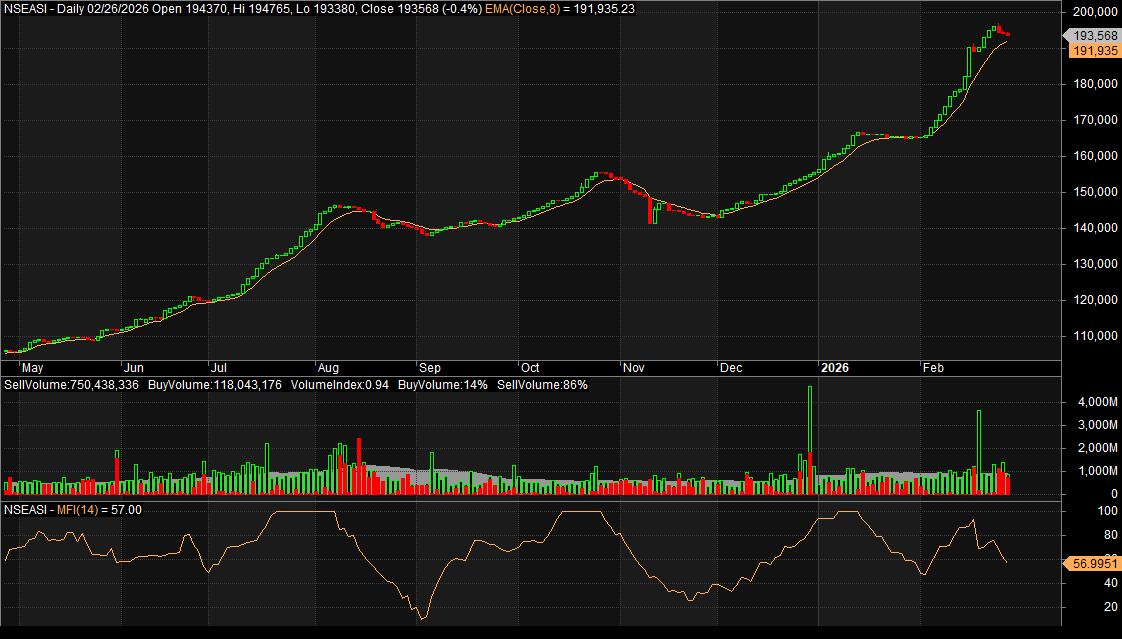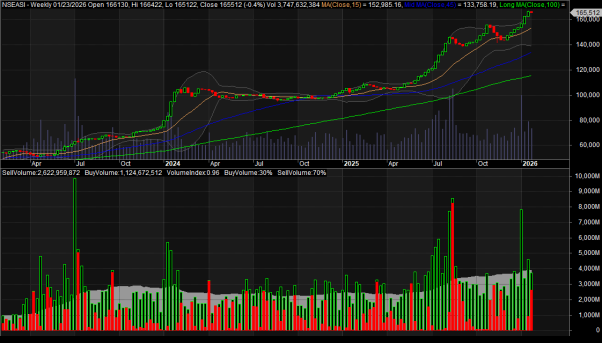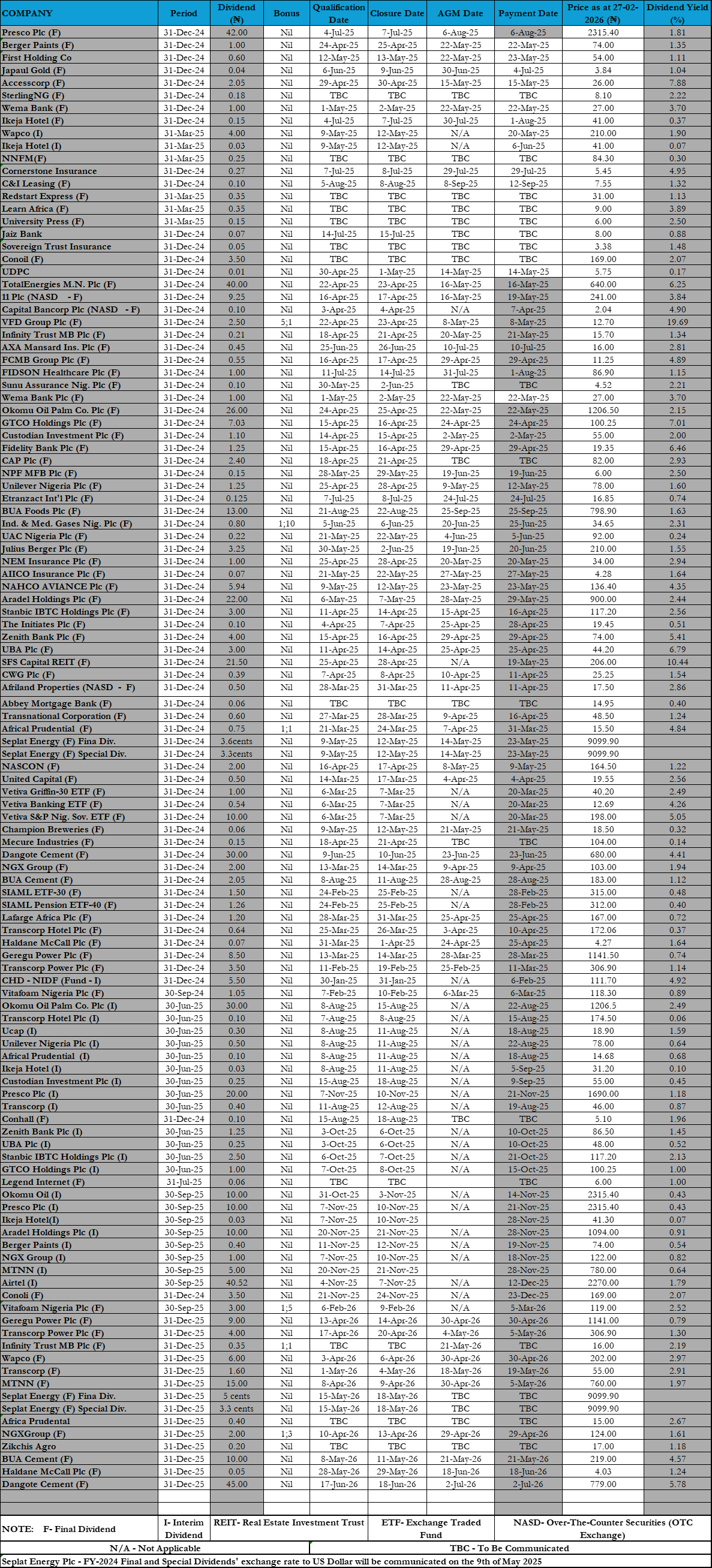
A few sectors have shown more impetus to support Nigeria’s economic recovery, a situation expected to reduce non-performing loans in the nation’s banks, while boosting the capacity by banks to play their roles as engine rooms of economic development and growth of any nation. This is important especially at this time when macro-economic indices are becoming positive and helping to improve the business environment, leading to the impressive corporate earnings churned out by most companies quoted on the Nigerian Stock Exchange (NSE), which today is a major driver of share price movement, just like in any other bourse across the globe.
It would be recalled that the impressive turnaround in the books of most quoted companies today has a lot to do directly and indirectly with the review by the Central Bank of Nigeria (CBN) earlier in the year of its foreign exchange policy, resulting in sustained intervention in the inter-bank market with the stable supply of FX to exporters and investors.
The intervention had helped the supply side of the interbank market, helping to ensure a stable exchange rate just as it stemmed imported inflation even as there is now relative stability in rates, with prices gradually falling, a situation that has also positively impacted inflation figures for the seventh consecutive month judging by the July month-end figures released by the National Bureau of Statistics (NBS) on Monday.
The relative peace in the Niger Delta implies ability of upstream oil and gas companies to export oil produced, recovery oil prices and significant leverage in the case of a few indigenous players, have brought relief to the cash flow of these companies and continue to impact their abilities to service their loan obligations to banks. Consequently, gas production to support the power sector is expected to reduce cost of manufacturing companies, especially cement producers. We also see potentials in the downstream oil and gas and services sectors. We have modelled the effect of the economic recovery on the banks and others industries.
It is noteworthy that the flexible foreign exchange market-determined rate and gradual improvement in disposable incomes of Nigerians supported the expansion in the manufacturing sector over the last four months. Recovery in oil prices and policies introduced to meet demand for foreign exchange by the CBN have boosted liquidity in the forex market which continues to attract inflow of funds, a situation that is now influencing the stock market positively.
Going by these factors still in play, we still see some rally potentials in the stock market.
Also, with the relative improvement in foreign currency liquidity, Nigeria’s general commerce sector has seen some relief over the past six months. The stable naira and availability of forex have significantly impacted importers’ revenues, and helping them to meet their loan obligations, which had encouraged issuance of Letters of Credits (LCs), as bankers now see the impact of recovery on their business and float.
There has also been relative improvement in gas supply due to reduced pipeline vandalism in the nation’s Niger Delta region; the ability of power companies to sign gas contracts; and government intervention in reducing the effect of huge debts owed power companies by government Ministries, Departments and Agencies (MDAs) through the CBN’s special fund for the sector to improve power supply in the country, which recently hit 6500 megawatts.
Cost of Risk (CoR) in the remaining 2017 cannot be estimated as recovery economic fundamentals are having positive impacts on the bottom lines of companies in different sectors. Our approach is to see more positive effects on our base case Profit Before Tax, if there is reduction in the determined percentage of loans to these sectors that become bad loans at the end of the year.
The gradual improvement being witnessed in manufacturing, power supply, Agriculture, oil and gas industry imply that the shares of Tier 1 banks recover in the second half by an average of 36% with FBN Holdings as the most vulnerable, while equity prices of the three Tier 2 banks will likely recover by a n average of 50% as Diamond Bank exhibits the highest vulnerability.
We maintain a positive view on some banking, building materials, consumers goods, agribusiness, healthcare and petroleum stocks, especially as some companies in these sectors have strong earnings generation potential and huge balance sheets to drive dividend payment and price.












